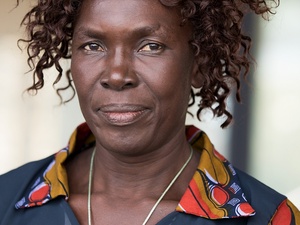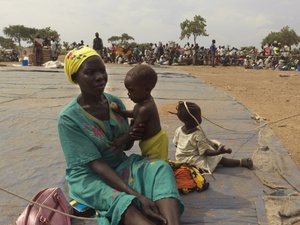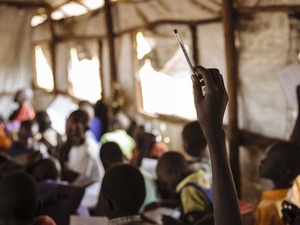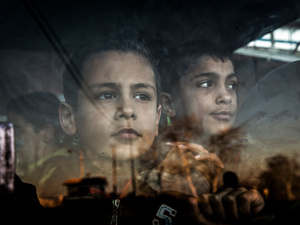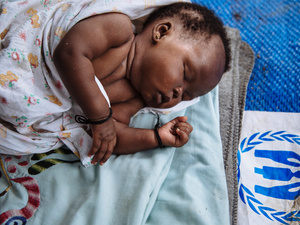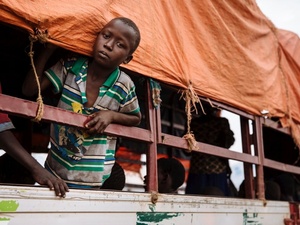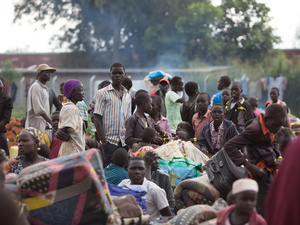In South Sudan, simple messages deliver dramatic results in tackling epidemic among refugees
In South Sudan, simple messages deliver dramatic results in tackling epidemic among refugees
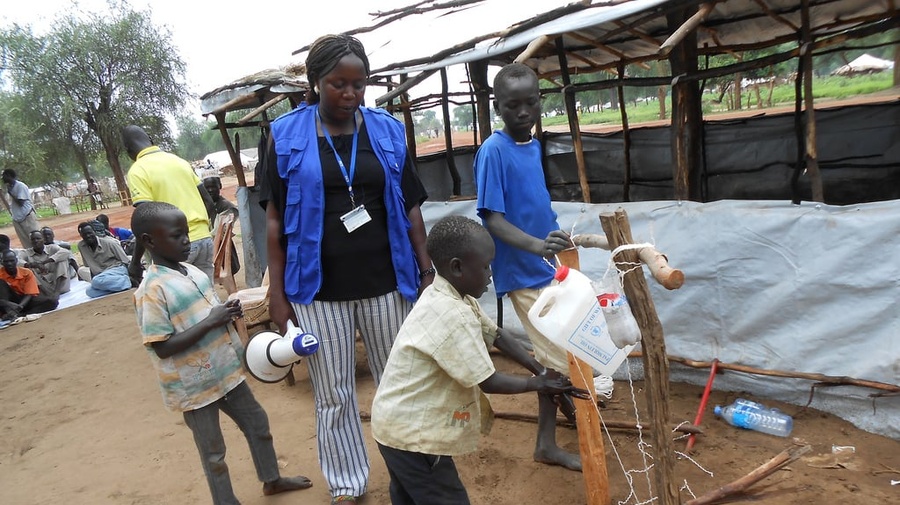
Young boys in the Doro refugee camp learn to wash their hands under the watchful eye of a hygiene promoter.© UNICEF/E.Nyasani
BUNJ, 28 October (UNHCR) – In the Yusuf Batil refugee camp in South Sudan where the number of new infections of the liver disease hepatitis E was once regularly between 200 and 500 hundred a week, public health efforts by the UN refugee agency and its partners have reduced the spread of the illness to four or fewer weekly cases.
The outbreak of the disease coincided with a new wave of refugee arrivals from Sudan's Blue Nile state during the summer of 2012. Hepatitis E, which is linked to poor hygiene and sanitary conditions, is transmitted through unwashed hands and water and food contaminated by fecal matter.
As a first response, UNHCR and humanitarian agencies re-doubled their efforts to provide sufficient levels of safe drinking water as well as an adequate number of latrines equipped with hand washing stands.
"Today, water access for refugees across all camps is at 22 liters per person which means sufficient quantities of water to cover an individual's daily personal and domestic needs," says Adan Ilmi, UNHCR's head of office in Maban. "Similarly, latrine coverage is one latrine for every 17 persons."
In order to ensure that the sanitations facilities were properly used and hygienic practices were adopted, a comprehensive public awareness and education strategy was immediately implemented in the areas' four refugee camps.
At the centre of their efforts, community health workers and hygiene promoters taught the refugees about the importance of hand washing. Frequent demonstrations on the use of soap or ash have been supported by the regular distribution of soap blocks, the monitoring of latrines for cleanliness, and the promotion of latrine use and the avoidance of open defecation.
Doro is Maban Country's most populous refugee settlement with 46,600 inhabitants. It is congested and during the rainy season prone to flooding that can render latrines in certain areas of the camp unusable. While the reconstruction and rehabilitation of some of these latrines is ongoing to stem the transmission of hepatitis E and other water borne diseases, UNHCR is also working on a strategy to remove and relocate over 10,000 refugees from Doro's flood prone areas.
The transmission rate of hepatitis E in Doro peaked last summer at between 50 to 80 new cases weekly. Today, as a result of the rigorous hygiene campaign, the number of new cases now averages 16 individuals a week.
"Now that the messages on good hygiene practices have been disseminated and understood, agencies are working to ensure that things like hand washing become second nature and a daily part of refugees' lives," says Evalyne Nyasani, a water sanitation and health (WASH) specialist with UNICEF, a sister UN agency working with UNHCR to provide support on response mechanisms in refugee situations.
Behaviour change has been one of the major challenges faced by health workers in Maban's refugee camps, says Nyasani. Misuse of prescribed treatments, the preference for traditional remedies over conventional medicines and deeply rooted cultural practices have all made efforts to tackle the disease more difficult.
"We have understood the messages from the agencies but some of the communities still believe that hepatitis E is from God," says thirty year-old Asha Osman who lives in the Doro camp. "Because of this they don't always take the information seriously, claiming that God will stop the disease."
Though the incidence of hepatitis E is now dramatically reduced, the efforts of UNHCR and its partners to promote good hygiene continue. Refugees will not just be the recipients of the messages on sanitation, says UNHCR's Ilmi, they will also be active contributors to their dissemination.
"Refugees now have a better understanding of the fact that their hands are vehicles for transmitting good or bad health outcomes," he says. "Hand washing is a small but essential practice that will prevent them from contracting hepatitis E and other illnesses, but ultimately the decision to do it rests with them."
As of this month, more than 11,000 cases of hepatitis E cases have been recorded in Maban's refugee camps with 241 people having died as a result of the infection.
By Pumla Rulashe, in Bunj, South Sudan


